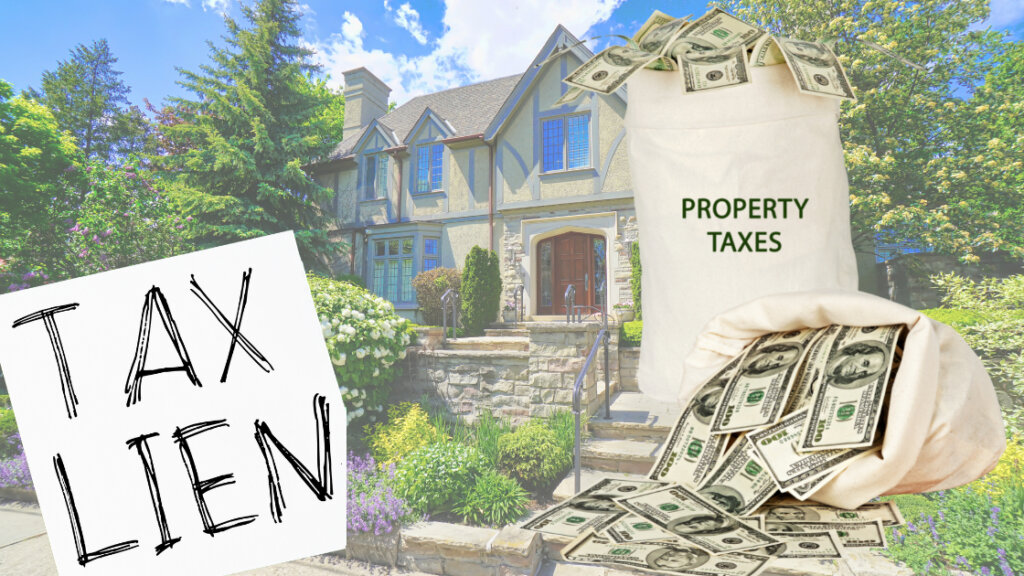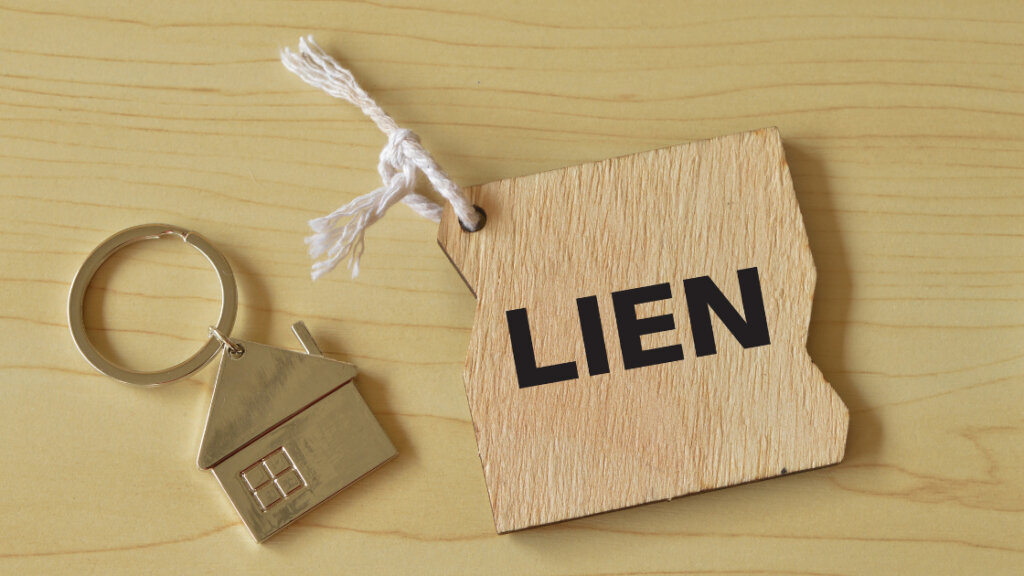
Do you own a property or are planning to buy one? It’s crucial to understand the legal implications of a lien and how it can impact your property. In this blog, we will delve into the world of liens, starting with what exactly a lien is and how it works. We will explore different types of liens such as bank liens, judgment liens, mechanic’s liens, real estate liens, and tax liens, understanding how each of them operates. You’ll also learn how to detect a lien on your home and the steps involved in removing a lien. Whether you’re a homeowner or looking to purchase a house, understanding lien laws is essential to protect your rights and avoid potential issues. Stay tuned to discover the ins and outs of liens and how they can impact your property ownership journey.
What is a Lien on your house?
A lien is a legal mechanism that allows a creditor to claim and sell a house if the debtor fails to repay their debt or fulfill financial obligations. It can be placed on different types of properties like real estate, vehicles, or personal belongings, and there are various types of liens such as tax liens, mechanic’s liens, and mortgage liens.
How Property Tax Lien Works?

A lien is a legal claim or right against a property used to secure repayment of a debt or obligation. This allows the creditor to sell the property if the debtor fails to fulfill their financial responsibilities. There are various types of liens, including common types of liens, tax liens, mechanic’s liens, and mortgage liens. To understand how a lien works, it is important to comprehend its legal definition and purpose. Additionally, one must need to know about liens are created and which assets can be subjected to them. Understanding the rights and obligations of both parties involved in a lien – the lienholder and the debtor – is crucial. It is also important to be aware of the process of enforcing a lien and the potential consequences for the debtor as well as common misconceptions surrounding liens.
Different Types of Liens: What Are They and How Do They Work?
There are various types of liens such as mechanic’s liens, tax liens, and judgment liens. Mechanic liens are filed by contractors or suppliers who haven’t received payment for their work. Tax liens are imposed by the government to secure unpaid taxes. Judgment liens are obtained through a court order when someone owes a debt that remains unpaid.

Bank Lien
A bank lien is a legal claim that a bank or lender can place on your property if you fail to repay a debt. It gives the bank the right to take possession of your property and sell it to recover the unpaid debt. Bank liens are commonly used by mortgage lenders when you take out a home loan. If you fall behind on your mortgage payments, the lender can file a bank lien against your property. This means that the lender has the legal right to foreclose on your home if you don’t make the necessary payments.
Judgment Lien
A judgment lien, one of the different types of liens, refers to a legal claim obtained through a court order due to an unpaid debt. This type of lien empowers the creditor to claim assets like real estate or personal property to settle the outstanding amount. Homeowners should be aware of the potential consequences of judgment liens, including foreclosure. Hence, understanding their rights and available options becomes crucial in managing such situations effectively.
Mechanic’s Lien
A mechanic’s lien is a legal claim that can be filed by contractors or suppliers who have not been paid for their work or the materials provided. This type of lien is one of several different types of liens, including tax liens and judgment liens. Mechanic’s liens, mechanic’s lien, are typically placed on a property to ensure payment for the services rendered. They give the lienholder a legal right to the property, which can result in foreclosure if the debt is not satisfied. It is important for homeowners and contractors alike to understand how mechanic’s liens work and the potential implications they can have on a property.
Real Estate Lien
When it comes to real estate, understanding the legal implications of a lien is crucial. A lien is a legal claim that a creditor has over a property as collateral for an unpaid debt. There are different types of liens, including mechanic’s liens, tax liens, and judgment liens. Mechanic’s liens are filed by contractors or suppliers who have not been paid for their work or materials provided. Tax liens are imposed by the government to secure payment of unpaid taxes. Judgment liens are obtained through a court judgment and give the creditor the right to claim the debtor’s property.
Tax Liens
Tax liens can have serious implications on homeowners as they represent a legal claim against a property for unpaid taxes. The local government imposes tax liens to collect outstanding taxes from delinquent taxpayers. Understanding different types of liens like mechanic’s liens and judgment liens is crucial for property owners who want to protect their rights. Seeking professional legal advice and conducting a thorough title search can help homeowners navigate the complexities of tax liens without facing potential foreclosures or other legal consequences.
What are the Legal Implications of a Lien on a House?

When a lien is placed on your house, it means that a creditor claims you owe them money, and until that debt is paid off, they have a legal right over your property. This legal claim impacts your ability to sell or refinance the property, as the lien usually must be paid before a property can be sold. Here’s a closer look at some of the legal implications:
Property Sale Complications: If you try to sell a house that has a lien on it, the lienholder has a right to the money from the sale before you receive any profits. In some cases, a buyer or another financing entity may require the lien to be paid off as a condition of the transaction. Thus, a lien can deter potential buyers or lower your house’s market value.
Refinancing Difficulties: Just like selling, refinancing a house with a lien can be difficult. Lenders may hesitate to refinance properties with liens because it increases their risk. If you default on your mortgage, the lien holder must be paid before the mortgage lender during the property’s sale.
Forced Property Sale: In some severe instances, lien holders may force the sale of your property to recover the money they’re owed. This typically happens when the due debt is considerable, like in the case of tax liens.
Credit Score Impact: Liens are typically recorded as public records and may be reported to credit bureaus. This can negatively impact the homeowner’s credit score, making it harder to borrow money in the future.
Legal Action: If the debt isn’t paid, lienholders may take further legal action, like suing. However, they have to wait until the lien matures, which usually takes a few months. In the case of a tax lien, the government can seize your assets if the outstanding tax isn’t paid.
It is crucial to address liens quickly to mitigate the legal implications. Ignoring a lien won’t make it go away and could exacerbate the situation. If a lien is filed mistakenly, you can dispute it. You can also negotiate with the lienholder, set up a payment plan, or even file for bankruptcy, depending on your financial situation. It may be best to consult with a legal professional to explore your options.
How Can a Lien Impact Your Property?
A lien can have significant consequences for your property. It can limit your options to sell or refinance, potentially leading to foreclosure if the debt isn’t settled. Liens can harm your credit score and make it challenging to secure future loans. Take prompt action to protect your property rights and financial stability.
How are Property Liens Placed and by Whom?
Property liens are placed by creditors or individuals who are owed money. The process involves following legal procedures and filing documents with the relevant government agency. Mechanic’s liens, tax liens, and judgment liens are common types. Once a lien is in place, it becomes a public record and can impact the property owner’s ability to sell or refinance the property.

How to Detect a Lien?
To detect a lien, conduct a search of public records or hire a title search company. Look for any outstanding debts or judgments against the property and check with the county clerk’s or recorder’s office for recorded liens. Consulting with a real estate attorney can provide guidance in identifying and addressing liens.
How Do You Remove a Lien from Your Property?
To remove a lien from your property, you have two options: satisfy the debt by paying it off in full or dispute it. Paying off the debt is the simplest way to remove the lien while disputing it requires filing a lawsuit or negotiating with the lienholder. After resolving the issue, you can request the authorities to remove the lien.
What is a Tax Lien and How Does It Affect Your House?
A tax lien is a legal claim placed on your property by the government when you have unpaid taxes. This can make it challenging to sell or refinance your house until the state law lien is resolved. If the tax lien remains unpaid, the government may eventually foreclose on your property. To remove a tax lien, you usually need to pay off the debt or negotiate a settlement with the government.
How to Deal with a Lien If You’re Planning to Buy a House?
When purchasing a house, hire a title search company to look up for any liens. If one is found, consult with an attorney for guidance. Negotiate with the seller to remove the lien or establish an escrow account with your lender and attorney until the issue is resolved.
Why is Understanding Lien Laws Crucial for Property Owners?

It is essential for property owners to have a thorough understanding of lien laws in order to safeguard their rights and interests. Knowledge about how liens can affect property sales and refinancing allows owners to take proactive measures to prevent and resolve any potential issues. Additionally, being well-informed about lien laws enables property owners to navigate legal disputes and avoid expensive litigation.
Can a Voluntary Lien on a Property Benefit You?
Yes, voluntary liens can be beneficial in specific circumstances. They can help secure financing for significant purchases and allow you to obtain a loan by using an asset as collateral. However, it’s crucial to thoroughly evaluate the terms and potential risks of a voluntary lien before committing to an agreement.

What Does a Lien Mean?
A lien is a legal claim by a creditor on a property until a debt is settled. It grants the creditor the authority to sell the property to recover the owed amount. Liens can be imposed on different assets, such as real estate, vehicles, and bank accounts, and can impact your ability to sell or transfer ownership of the property until the debt is resolved.
What Is a House with a lien?
A lien on your house is a legal claim that creditors have against your property to ensure payment of a debt. It grants them the authority to sell the property if the debt remains unpaid. Examples of liens include mortgage, tax, and mechanic’s liens. Before selling or refinancing your house, it is crucial to address and resolve any existing liens.
How Do I Remove a Property Lien?
To remove a lien, you need to resolve the underlying debt or claim. Typically, paying off the debt in full is the main method. However, negotiating a settlement or payment plan with the lienholder may also be possible. After resolving the debt, you can obtain a lien release or satisfaction document from the lienholder.
How do I find if there’s a lien on my property?
To determine if there’s a lien on your property, you can contact your local county recorder’s or land records office, hire a title company or real estate attorney to conduct a title search, check online public records databases, or consider hiring a professional lien search service for a thorough investigation.
Can I sell my house if there’s a lien on it?
Yes, it is possible to sell a house with a lien on it. However, before the sale can proceed, the lien must be paid off using the proceeds from the sale. The lienholder must provide documentation confirming that the debt has been cleared. It is advisable to seek assistance from a real estate attorney or title company when dealing with a house sale involving a lien.
Conclusion
Understanding the legal implications of a lien is crucial for property owners. Whether it’s a bank lien, judgment lien, mechanic’s lien, real estate lien, or tax lien, each type of lien can have a significant impact on your property. It’s important to know how liens are placed and by whom, as well as how to detect and remove a lien if necessary. Additionally, understanding lien laws is essential when buying a house to ensure you don’t inherit any existing liens. However, it’s worth noting that there are voluntary liens that can benefit you, such as mortgage liens. To navigate the complexities of liens and protect your property rights, consult with our experienced legal team. Book a consultation today to learn more about your options and ensure the security of your property.

Contact Us
We would love to hear from you! Please fill out this form and we will get in touch with you shortly.

